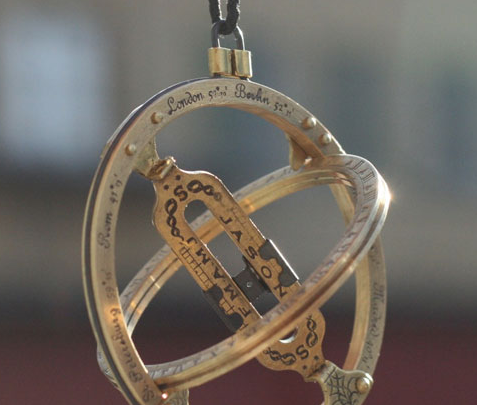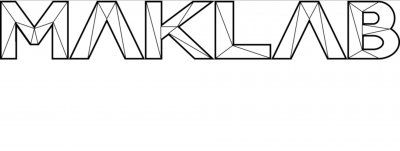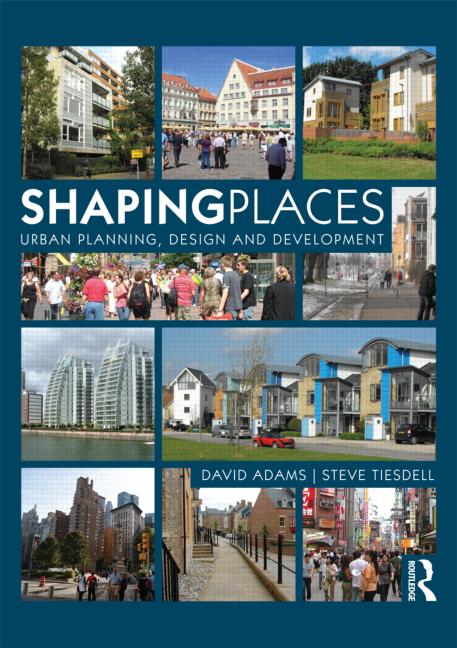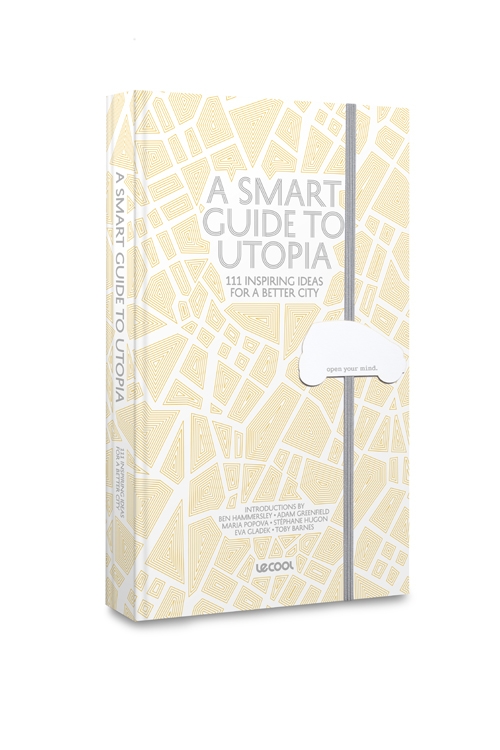Yasmin Ali
Urbanism // Design
Product Review: Kala's pocket Sundial
August 22nd, 2014
This month I have a product to review that brightened my day, in the form of a pocket sundial. The role of sunlight in design is something that architects have worked with for hundreds of years. There is a pocket version of an ancient tool available to help with solar studies, via a pocket sundial that is a thing of beauty. H. M. Kala’s Sundial, also subtitled as the Sunwatch, it tells the time of day by the position of the Sun, determined by aligning its moveable calibrated concentric rings. Its type is known as the universal equinoctial ring dial, a portable version originally designed in the 15th Century for sailors.
The rings are called equatorial and meridian rings, or Gemma’s rings, and when not in use can be folded together into a small flat disk. The central bar holds a perforated slider that was positioned to the month and day according to a scale scribed on the bar. This style of sundial indicates true North and is aligned with the Earth's axis; to do this, the user configures the appropriate latitude setting to the location. This means the sundial also functions as a miniature model of the Earth and a compass.
As well as the illustrious history of its original invention, the Kala sundial has a proud family history and German engineering. It’s a remarkable instrument miniaturised to take on your travels.
Retails at 42euros+shipping // For more information see website here
With thanks to Matthaeus Kala of H.M.Kala
MAKLab Resin Casting @ EISF
April 16th, 2014
MAKLab ran a novel workshop introducing Resin Casting to novices at this year's Edinburgh International Science Festival. Attendees were introduced to not only how to dye and cast resin polymer, but also firstly how to cast a mould forming the inverse of a desired form out of silicone. The silicone is fast-setting and produced a reusable mould from which duplicate resin casts could be made.
Casting the mould
1. It helps to use a plastic or similar frame stuck to a flat base as a surround. The object you wish to make a cast is then stuck temporarily to this base. It needs to be flush with the base.
2. The silicone and its catalyst are then mixed in equal measures and poured immediately into the mould.
3. Within around ten minutes the mould is set and can be disassembled from the frame.
Casting resin
1. The resin and its catalyst used in this case are mixed in equal measures.
2. The mixed resin must be poured straight after mixing as it is fast-setting. At this point it can be coloured using a drop of dye.
3. Within around ten minutes the resin is set and the piece can be separated from the mould.
about the organisers
MAKLab is an open-access member makers' workshop based in Glasgow. They recently moved from the Lighthouse to larger premises and are now based in Charing Cross. They have further plans for expansion, including a possible Edinburgh base, and a mobile MAKLab like this one, appearing at the upcoming Edinburgh Makers' Faire.
EISF 2014 runs 5-20th April and various venues around central Edinburgh. There are events daily for all the family, including workshops and talks, and theme nights. Many events are free; the full programme can be viewed online and in the official brochure.
// With Thanks to EISF Press Office
Book Review: Shaping Places
March 22nd, 2014
The core of Shaping Places: Urban Planning, Design and Development explores why this is essential, and how it can be delivered, by linking a clear vision for the future with the necessary means to achieve it. Crucially, the book argues that public authorities should seek to shape, regulate and stimulate real estate development so that developers, landowners and funders see real benefit in creating better places. Key to this is seeing planners as market actors, whose potential to shape the built environment depends on their capacity to understand and transform the embedded attitudes and practices of other market actors.
The premise of the main thesis is the requirement for 21st century town planners and civic leaders to be skilled in understanding the political economy of real estate development and successful in changing its outcomes through smart intervention. Drawing on a strong theoretical framework, the book reveals how the future of places will come to be shaped through constant interaction between State and market power.
Shaping Places is a well-considered textbook that explains how cities can work with the real estate development framework and cycle to help create attractive and prosperous places to live and work. It relates the role of market outcomes and economics to quality of life and therefore place, and economic outcomes as a vehicle and precursor to successful and sustained urban regeneration and development.
This is a cross-sectoral publication that bridges interrelated fields of Urban Design and Policy, Property and Real Estate Practice Management, and City Planning and regeneration. This is a correlation well-established in the University where the authors originate, with dual stream degree programmes with curricula overlapping content from City Planning and Real Estate Development, as well as a unique Masters’ programme accredited by both the RTPI and RICS. The book is aimed at students and career professionals and academics of these subjects, and is well illustrated with colour diagrams and photographs. The text is contextualised by a range of case studies, including international examples.
// Shaping Places: Urban Planning, Design and Development, Routledge, RRP £30.99 paperback
Book Review: LeCool's A Smart Guide to Utopia
February 3rd, 2014
Subtitled as '111 Inspiring Ideas for a Better City', LeCool's A Smart Guide to Utopia is a must-have on any discerning citizen's bookshelf. Beautifully-bound and presented hardback edition with silver gilded lettering and yellow-edged paper. It is illustrated with carefully-curated accompanying photos, sketches, infographics and excerpts from architectural presentation drawings, making it a visual feast.
One of the strengths of its textual content is that it is readable to the general community, not just urban planners. It includes essays by contributors which include architects and key urban thinkers, among these city marketing guru Richard Florida and global multidisciplinary design and engineering firm ARUP. There is also input from LeCool editors from around the world including LeCool London, Lisbon, Budapest, Moscow, Vienna and Barcelona, as well as the founding agency.
Inspring and informative links to associated websites populate the footer of many pages, making this a book for the digital ages. The book is indexed, making the ideas easy to find, and the volume is a useful source book or as a primer for concept research on emerging urban innovations.
// With thanks to K-MB Berlin, Smart, and LeCool
// Retails at £20 (24euros)+ p&p, Hardback, 160 pages, available online from LeCool online bookshop
Weblinks
LeCool Bookshop - http://lecoolbook.com
LeCool website (magazines) - here
LeCool Glasgow - here
Event Preview: Design Skills Symposium, Glasgow
January 10th, 2014
This year's Design Skills Symposium run by A+DS has an exciting agenda and venue. It will be held on the 20-21st March at the Emirates Stadium. With the Glasgow 2014 Commonwealth Games as a backdrop, the event will feature how a focus on a design-led approach to the creation of healthy sustainable neighbourhoods and community engagement can help to build the conditions for greater urban and economic resilience.
The event is intended for both built environment professionals, and people with an interest or involvement in the creation of places. It is delivered in partnership with the Scottish Government, Glasgow City Council and Clyde Gateway. A varied programme is on offer, including presentations, masterclasses, site visits and practical design exercises. The Scottish Government is running a pre-symposium drawing workshop entitled 'Drawing Places', designed for delegates wishing to implement drawing and design skills at The Lighthouse on the 27th February. This is provided at no extra cost; full details are also available on the symposium website.
// Bookings made before the 17th January are eligible for early bird rates. Discounted places are also available for students, recent graduates or individuals representing community groups.
// Coverage of the event will be published in March.
http://www.designskillsscotland.co.uk/







